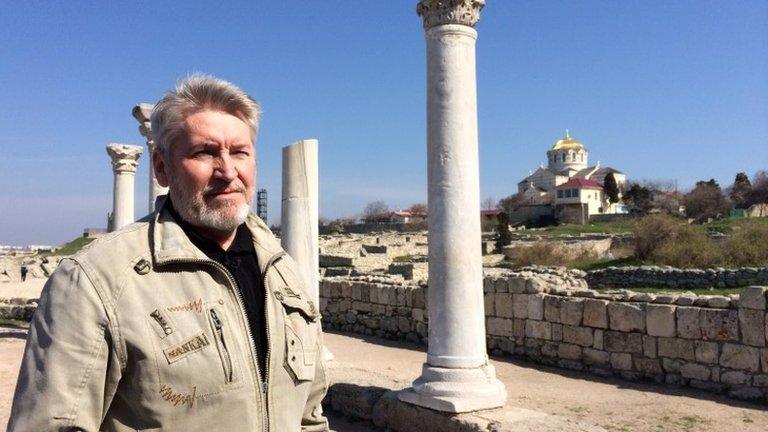Ukraine crisis casts shadow at St Petersburg economic forum
- Published
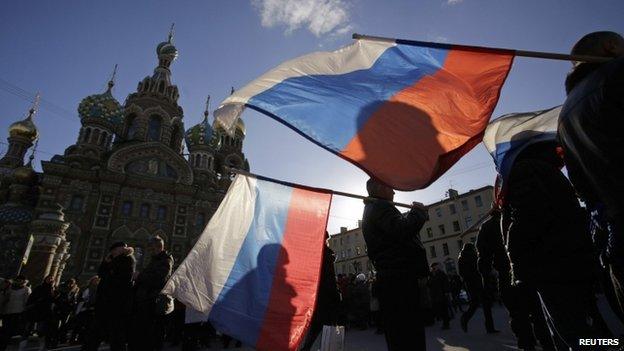
Events in Crimea have turned the business climate upside down
What a difference a year makes. Twelve months ago, German Chancellor Angela Merkel was here in St Petersburg, sharing a platform with Russian President Vladimir Putin.
This annual forum in Mr Putin's favoured home city of St Petersburg was being seen as a Eurasian alternative to the famous Davos Global Economic Forum.
It's true that even last year there may have been nervousness at the country's near 20% share of the EU energy supply, but Russia was still seen as a key growth market for European goods, services and investments.
But now events in Crimea and Ukraine have turned the business climate upside down.
The most obvious sign of the change are missing attendees by the planeload.
Scores of global business chiefs have heeded requests by US President Barack Obama and other Western leaders to stay away. Others have compromised and sent underlings. None were giving interviews.
Yet multinational business leaders have more at stake than their profiles at home.
Between them, they have invested billions of their shareholders' money in the region.
They may be shunning the limelight, but many feel they need to be here to compare notes and try to keep ahead of events.
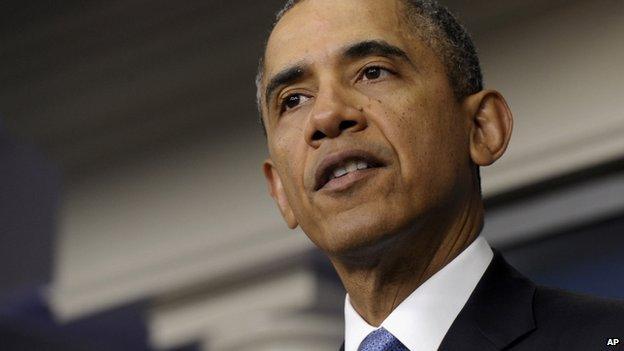
US President Barack Obama and other Western leaders have urged business leaders not to attend the forum
The Philips, BPs and Deutsche Banks of this world are all desperately hoping that the tension around Crimea and eastern Ukraine will ease, and there's no move towards a new round of deeper sanctions focussing on economic sectors, notably on energy and financial services.
What counts here is not so much what the big-wigs say in the carefully managed set-piece events.
(Or indeed former bigwigs. Within a few moments the BBC spotted former IMF head Dominic Strauss-Kahn - and former EU Commissioner Lord Mandelson, who now acts as a consultant.)
It's what people are talking about in the networking coffee shops dotted around the huge, sprawling conference complex, close to St Petersburg's famed riverfront.
Bernard Sucher, a member of the board of Aton, one of the last remaining independent investment banks, put things most starkly when he said that the latest turn of events was "scarier" than anything he had encountered in decades of doing business in Russia.
"Business people can cope with economic cycles and setbacks," he says. "They make bets, and if their judgment is correct, they can reap rich rewards.
"But now a country which has spent years globalising and showing it is a part of Europe is suddenly going its own way. "
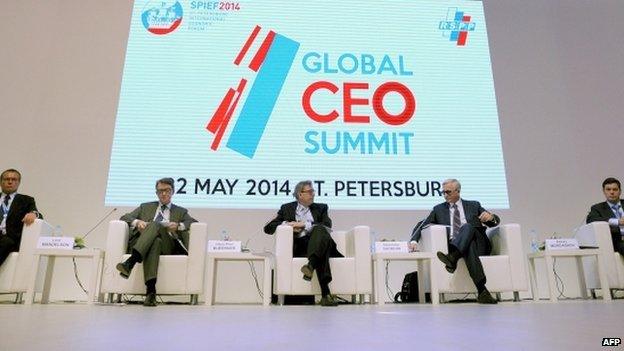
Lord Mandelson joined politicians and business people attending the event
For Mr Sucher, the worrying part is that economic and political decision-making is being concentrated in the hands of "a few hundred people". It's a return to an older business model for Russia which he thinks bodes badly for both local companies and their foreign partners.
Russia has always been high-risk, but has also offered high returns in a world where strong profits are hard to come by.
Not everyone is quite as gloomy as Konstantin Basmanov, head of small business banking at PSB bank, who says Russia's drift into recession is a more immediate problem for companies.
"The vast majority of small firms are not dependent on exports to Europe or the US, but they are reliant on customers in the old Russian republics," he says.
"Here things have slowed down and it is only when they have more customers that they will invest in new ideas and business models. "
Another intriguing twist being discussed informally here is Mr Putin's $400bn deal to pipe natural gas into China.
For one thing, the price of the actual gas has not been revealed. Many wonder if Russia can expect to make much of a profit, given the vast cost of building the pipeline.
But more importantly, it all marks a détente between two long-standing rivals, if not enemies. Could this be the biggest sign yet of a shift in economic focus away from the West?
China certainly wants cleaner energy - and has the cash to pay for it, though it seems unlikely it would pay above market rates for it.
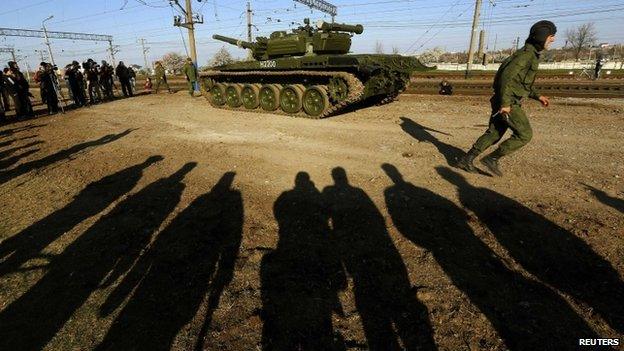
The annexation of Crimea is off the agenda at the St Petersburg International Economic Forum
Meanwhile, back at the forum, some fun can be had examining the titles of the topics up for debate.
One is the cashless society. Russian business people may be debating the future use of technology but meanwhile there is a row brewing between the Kremlin and the owners of Visa and Mastercard.
There are threats that such branded cards could even be outlawed in Russia. That would certainly make life cashless for some.
Then there's the wider discussion over how to raise investment and stimulate a return to growth for the home economy - which the government officially acknowledges is heading into recession.
The cynic might say it's events in the Crimea that have done the most damage to the economy.
But that topic is firmly off the business agenda here.
- Published9 May 2014
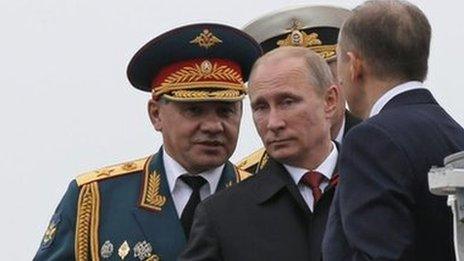
- Published21 March 2014
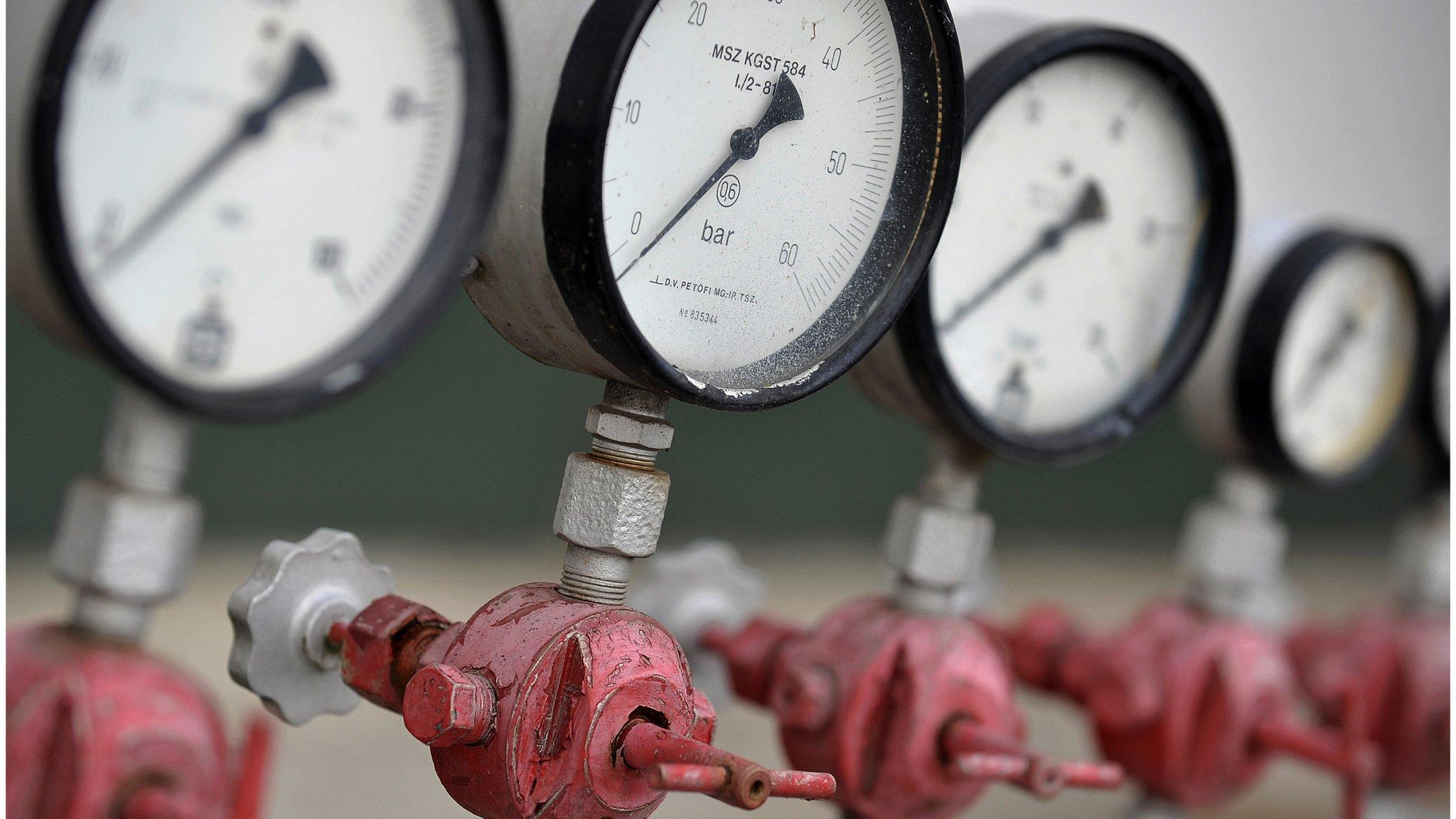
- Published25 March 2014
